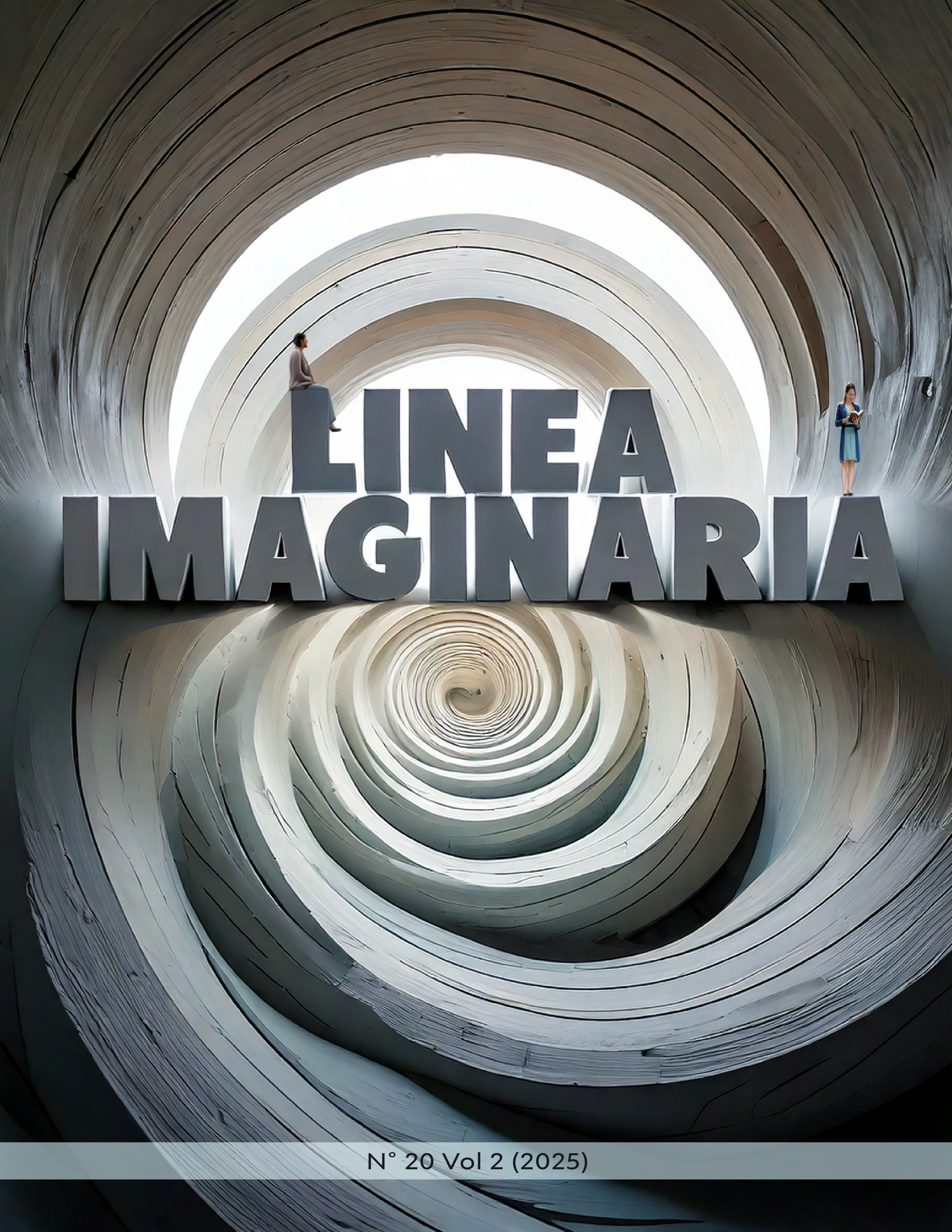ETHICAL CHALLENGES OF TRANSHUMANISM: A BIOETHICAL PERSPECTIVE ON THE IMPLICATIONS OF EMERGING TECHNOLOGIES AND THE FUTURE OF HUMANITY
DOI:
https://doi.org/10.56219/lneaimaginaria.v2i20.3752Keywords:
Bioethics, Transhumanism, ethical challenges, autonomy, emerging technologyAbstract
Transhumanism is a philosophical and cultural movement that views science and technology as tools to enhance human capabilities and transcend all biological limitations. It is believed that through biotechnological advances, artificial intelligence, and nanotechnology, it is possible to increase human physical, cognitive, and emotional capacities, even achieving eternal life. This article seeks to explore and analyze some of the ethical challenges that arise, identifying relevant bioethical considerations and offering a critical perspective on how this discipline could influence the future of humanity. The article's approach is theoretical and analytical, based on a detailed analysis of existing literature on bioethics and transhumanism. Hypothetical cases and scenarios are examined to illustrate potential ethical dilemmas. In addition, current debates in the academic and philosophical communities are reviewed to contextualize concerns surrounding transhumanism, identifying some of the critical ethical challenges, including potential social inequalities exacerbated by discriminatory access to human enhancement technologies, loss of human essence, and threats to traditional values of dignity and autonomy. The paper discusses whether the pursuit of human perfection may lead to new forms of discrimination and exclusion. It concludes that, although transhumanism offers significant opportunities to improve the human condition, it also poses ethical risks that must be carefully considered. This suggests the need for an appropriate and well-founded regulatory framework to guide the development and implementation of transhumanist technologies, ensuring that human well-being is promoted without compromising fundamental principles of justice, equity, and dignity. These ethical dilemmas require critical reflection, in which bioethics must adapt and evolve to meet new challenges, ensuring that technological development alternates with fundamental human values.
Downloads
References
Barcelona UA de. UAB Divulga Barcelona Investigación e Innovación. [Citado 2 de enero de 2024].¿Responsabilidad biomédica en el transhumanismo? Disponible en: http://www.uab.cat/web/detalle-noticia/responsabilidadbiomedica-en-el-transhumanismo1345680342040.html?noticiaid=1345837455488
Boden, M. A. (2017). Inteligencia Artificial. Madrid: Turner Noema.
Bostrom, N. (Ed.). (2014). Superintelligence: paths, dangers, strategies. Oxford University Press
Cabrales Salazar, Omar y Márquez, Florentino. (2017). El buen vivir y el no consumo como modelos de desarrollo desde la perspectiva de la bioética global. Revista Latinoamericana de Bioética, 17 (1), 168-183. https://doi.org/10.18359/rlbi.1726
Cordeiro, JL y Wood, D. (2018). La muerte de la muerte. Centro Libros PAPF.
Cortina, A., & Miquel-Ángel, S. (2016). Humanidad Infinita. Castelló: Ediciones Internacionales Universitarias.
Cortina, A. (2022). Los desafíos éticos del transhumanismo. Pensamiento. Revista De Investigación E Información Filosófica, 78(298 S. Esp), 471–483. https://doi.org/10.14422/pen.v78.i298.y2022.009
De Gray, A. y Rae, M. (2013). El fin del envejecimiento: los avances que podrían revertir el envejecimiento humano durante nuestra vida. Grau, C. (trad.). Berlín: Lola Books.
Diéguez, A. (2017). Transhumanismo. La búsqueda tecnológica del mejoramiento humano. Barcelona: Herder.
Fernández Valdés, G. (2021). Transhumanismo, pregunta a la naturaleza humana. Perseitas, 9, 389-421. DOI: https://doi.org/10.21501/23461780.3981
Fukuyama, F. (2002). El fin del hombre: consecuencias de la revolución biotecnológica. Editorial B.
Fukuyama, F. (1989). ¿El fin de la historia? El Interés Nacional, (16), 3-18.
García Torres, C. (2020). La bioética como puente entre la dignidad humana, la participación social, los derechos humanos y los objetivos de desarrollo sostenible. Análisis. Claves De Pensamiento Contemporáneo, 27, no. 5: pp. 1-. https://doi.org/10.5281/zenodo.4595548
Gracia, Diego (2010). «Las paradojas de la vida». Bioética complutense3: pp. 3-5
Galparsor JI. Posthumanismo, inmortalidad y naturaleza humana. (2020). Revista de Filosofía Moral y Política.
Habermas, J. (2001). El futuro de la naturaleza humana. ¿Hacia una eugenesia liberal? Editorial Paidós.
López de Mántaras, R. y Meseguer, P. (2017). Inteligencia artificial. Madrid: Los Libros de la Catarata/CSIC.
Masiá, J. (1998): Bioética y antropología. Ediciones Universidad P. Comillas, Madrid.
Mayordomo de la Fuente, J. F. (2022). Bioética y Tecnología. El reto de la responsabilidad. Estudios Filosóficos, 43(124), 435–449. Recuperado a partir de https://estudiosfilosoficos.dominicos.org/ojs/article/view/575 (Original work published 30 de enero de 2021)
Ortiz de Zárate Alcarazo L. (2020). El transhumanismo o el fin de las esencias: el (bio) conservadurismo y su reminiscencia aristotélica. Logos. Anales del Seminario de Metafísica, 53, 99-118. https://doi.org/10.5209/asem.70839.
Postigo Solana E. Bioethics and transhumanism from the perspective of human nature. Arbor [Internet]. 2019; 195(792):507. Disponible en: http://ddfv.ufv.es/bitstream/handle/10641/1682/Bio%c3%a9tica%20y%20%20 transhumanismo.pdf?sequence=1&isAllowed=y
Perspectivas y peligros del transhumanismo | Cairn Mundo Edition [Internet]. [Citado 13 de febrero de 2024]. Disponible en: https://www.cairnmundo.info/dossiers-2022-5-page-1.htm
Rey Lema, D. M. (2019). Bioética y bioeconomía: disciplinas para supervivencia del mundo planetario. Trilogía Ciencia Tecnología Sociedad, 11(20), 177–204. Doi: 10.22430/21457778.1217.
Sanabria Rangel, P. (2018). Complejidad y bioética: complejidad como marco de la bioética global. Revista Latinoamericana de Bioética, 18(35-2), 126-161.
Sandel, M. (2007). El caso contra la perfección. La ética en la era de la ingeniería genética. Harvard University Press.
Schmidt Hernández, L. (2008). ¿Qué es la bioética? Informe Médico, 10(8), 475-486.
Sommerville M. (2006). Searching for Ethics in a Secular Society. In: Ethics of Science and Technology. Paris: UNESCO; 17-41.
UNESCO. (19-de octubre de 2005). Declaración universal sobre Bioética y Derechos Humanos. Declaración universal sobre Bioética y Derechos Humanos. Paris.
Velázquez Fernández, H. (2009). Transhumanismo, libertad e identidad humana. THÉMATA. Revista De Filosofía, (41). Recuperado a partir de https://revistascientificas.us.es/index.php/themata/article/view/594
Villalba Gómez, Jairo Andrés. (2016). Problemas bioéticos emergentes de la inteligencia artificial. Diversitas: Perspectivas en Psicología, 12 (1), 137-147. https://doi.org/10.15332/s1794-9998.2016.0001.10
Vinge V. La singularidad tecnológica. Revista electrónica. AXXON 1994.
Downloads
Published
How to Cite
Issue
Section
License
Copyright (c) 2025 LÍNEA IMAGINARIA

This work is licensed under a Creative Commons Attribution-NonCommercial-ShareAlike 4.0 International License.
La revista Línea Imaginaria conserva los derechos patrimoniales (copyright) de las obras publicadas, que favorece y permite la reutilización de los mismos bajo la licencia Creative Commons Atribución-NoComercial-CompartirIgual 4.0 , por lo cual se pueden copiar, usar, difundir, transmitir y exponer públicamente, siempre que se cite la autoría y fuente original de su publicación (revista, editorial, URL y DOI de la obra), no se usen para fines comerciales u onerosos y se mencione la existencia y especificaciones de esta licencia de uso. Si remezcla, transforma o crea a partir del material, debe distribuir su contribución bajo la misma licencia del original.














